"My dream trip would be to Sherwood Forest, no contest. You are currently querying for Wordweaver, the first novel in your fantasy series. How has that process been and do you have any advice for writers who are preparing query letters? The process of querying has been difficult, but it’s improved my writing immensely. There’s so much information out there about the best querying tips and practices, and everyone has their ideas on the best way to do it. I think the best advice is just to keep working and adjusting your letter with each query, and try not to get discouraged. Most of the querying process seems to be just waiting for responses, and it’s hard to stay positive when your inbox is filled with rejections. But I believe there’s a plan for each of us, and that fulfilling any dream mostly comes down to timing. As a writer, a teacher, and an artist you have a diverse creative palette. How do you balance and manage your creative projects while sustaining your creative energy? I’m lucky enough to teach classes I love, which also allow me to be creative during the work day. I do many projects alongside my students, so I have constant access to fresh new ideas and perspectives. If I do start to feel burned out, I take a break from one outlet to focus on another. Currently I’m spending more time reading and drawing, to give myself a break from all the revision I’ve been doing. "I do many projects alongside my students, so I have constant access to fresh new ideas and perspectives. As you mention on your website, as a teacher at a small school you teach many different subjects including Spanish and German. Does teaching and speaking these languages influence your fantasy world? Does any other subject that you teach feature prominently in your writing? Teaching languages has definitely influenced my worldbuilding. The two countries at war in Wordweaver are loosely based on Norway and Ancient Rome, so many of the character and place names come from those languages. The other subjects I teach are art and music, which I often use to enrich the culture and history of the worlds I write. "The two countries at war in Wordweaver are loosely based on Norway and Ancient Rome,
Wordweaver is the beginning of Six’s story, though not from his point of view. I started it as a NaNoWriMo project in 2013, and I’ve been working on the trilogy almost exclusively since then. "It turns out when I wrote “he” it looked like a “6” to my brother, One of the greatest joys and challenges of creating a fantasy world is managing the use and effect of magic. How does magic work in Wordweaver and how did you create your framework for magical abilities and limitations? The magic system in my book is called Wordweaving. Only things that could normally occur in nature are possible through Wordweaving, which does limit the system as a whole. A Wordweaver could not turn a rose into an apple, for example, or create something from nothing. Wordweaving can also only be performed if the Wordweaver is in physical proximity to the intended object, so they could not affect something across a room. The strength of the Wordweaving varies from person to person. Just like any other talent, it is up to the Wordweaver to develop their own abilities. From its description, the characters in Wordweaver face some historically relevant threats including invasion, a monarch’s ambition, and slavery. Were there any historical stories or sources you drew on while writing the novel? I’ve always been fascinated by WWII history, and though I didn’t intend to base the story on specific events, there are definitely similarities. The man who rises to power after assassinating the royal family bases his political platform on a sensationalized form of patriotism. In Wordweaver’s sequel, several scenes are based on my research of the French and Polish undergrounds during German occupation, especially when it comes to the involvement of women in the resistance. That, plus my aforementioned affinity for Robin Hood legends, usually leads me toward stories where the main action is more subtle and strategic than in battles involving brute force. "In Wordweaver’s sequel, several scenes are based on my research of the French and Polish undergrounds Wordweaver is not the end of your story! With two more books on the go, Ravenshield and Everheir, what can readers expect to see from you next and where can they stay up to date on your most recent projects? There are so many stories I want to tell, and I’m excited to start working on some new ideas (including one story featuring a female pirate and her timid male research assistant.) I share project updates as well as book reviews, poetry, and writing tips on my website and am looking forward to hearing from other writers, teachers, and anyone else who needs a break from reality! To stay up to date on Wordweaver's journey towards publication follow Rachel on Twitter!
0 Comments
"I can’t stomach olives, that’s the one food I cannot grit my teeth and power through, What does a typical day of writing look like for you? Do you have any rituals or habits that help to keep you focussed or make your session more productive? It really depends a lot on the project(s) I’m working on, but more often than not I find my writing to be sporadic. While I do push myself to work every day, the amount of work I get done varies depending on my mood, if I’m rested, or headspace. I am careful not to end up in situations where I am forcing myself to write or feeling pressured to because I believe all of that greatly hinders my creativity. When I do sit down to write though, I will usually listen to some music to get me in the right headspace, never any songs with lyrics or singing, usually background music from video games or orchestral pieces. What first drew you to writing and what keeps you writing after years of going at it? Do you have specific goals in mind, like publication, or do you write for other reasons? My first introduction to writing was a high school teacher I had. He really encouraged me to try creative writing and was a supporter in my beginning days. Since graduating, the thing that inspires me is other people’s work, funnily enough, I think especially the work I dislike. When I read, see, or even play a piece of work that doesn’t make me feel anything, my head fills with ways I would have written it differently. I’ve never been the kind of person to have long term goals in mind, and the same rings true for writing. Whether it be a novel, poetry, or a quick short story, my primary concern is to create things I like and am ultimately proud of, but that being said, publishing is also a major goal with Injectable Ashes specifically. "When I read, see, or even play a piece of work that doesn’t make me feel anything,
You have lived with mobility challenges for most of your life. Do you feel like this influences your writing in the perspectives of your characters or do you not view this as an influencing factor? I have lived with a nervous system disability for most of my life, so it’s hard to say it doesn’t dictate at least some of my writing. I can say there are absolutely elements that have been addressing my disability metaphorically; in fact, you might be able to break down the entire storyline into one giant allegory. And as much as I preach about separating the author from their characters, eventually, details are naturally going to overlap. "I can say there are absolutely elements that have been addressing my disability metaphorically; What was it like to write the sequel to Injectable Ashes? Was it easier or harder? Did anything you thought was going to happen shift dramatically or did it play out as you planned? It was considerably more stressful working on the sequel. Every creative decision I made required weeks of deliberation and planning. I became a perfectionist because of how much I love Injectable Ashes, not wanting to only match the quality I expect from myself, but to outdo myself. That was something that really weighed me down and made things considerably more difficult to conceptualize. But as for when it came time to put pen to paper and actually write, I was able to find my rhythm quite quickly and pick up right where I left off. Initially, I thought I had a pretty firm idea in how the story would turn out in the sequel, but what I ended up with was something entirely different, and a lot of those difference were changes I didn’t think of until I got to writing those parts. "I became a perfectionist because of how much I love Injectable Ashes, What is your next big project? Will you write a third book in the series or do you have something else planned? I’m taking a break for a while from the novel, but I already have ideas cooking in the back of my mind for a third installment, so that will likely be the next major project I’ll be looking to conquer, until then though I’ll continue writing, working on music, poetry, short stories, or whatever else catches my interest. To keep up with Brendan and his upcoming projects follow him on Twitter.
What does a productive day of writing look like for you? Do you have any habits or rituals that help you stay focussed or be more productive? I’m currently working on ritualizing 1,000 words a day minimum. I’ve been all over the place, ranging from zero to 8,000 in a single day. A good day is when I’m in a state of flow, when the words seem to come of their own accord. That only comes if I’ve been regularly writing for a few weeks. Habits right now are hard to form, because I have three toddlers. But I do have a special writing station, I have noise cancelling headphones and my favorite 16th century choral music station on Pandora, and sometimes, that works. "I do have a special writing station, I have noise cancelling headphones What is the greatest obstacle between you and your writing? Myself. Having a self-defeating mindset that feeds on internal negativity. Sometimes I can’t write. Then I hate myself. But recently I’ve gotten pretty good at just forcing myself to work through it. Still have some bad days, though. Your work is inspired by the Russian Folktales; I can relate as my work is based off the Norse Myths. Where does the writing process start for you: with an original idea or with the folktale? Good question! The folktale is the frame for me, the backbone. I don’t study it or read it; it’s inside me already, I grew up with them. So within that world that I know, I then start to think about original ideas inspired by the tropes of the fairy tales. If I’m stuck, then I’ll read a folktale I haven’t read before, and often I’ll get weird tangential ideas for mythical creatures or obstacles or conflict that way. It’s fun. "The folktale is the frame for me, the backbone. I don’t study it or read it; it’s inside me already, I grew up with them."
But there’s something about them that engages very intrinsic parts of human beings, no matter what the culture. Tolkien talks about this, modern neurobiology confirms it with interesting studies on brain scans. Basically, there’s something about fairy tales that can tell a deep truth in a way that goes straight to the heart, sometimes even bypassing the brain. It’s some like incantation or music, which is more experiential than rational. "there’s something about fairy tales that can tell a deep truth in a way that goes straight to the heart, What is next for you creatively? Do you have another project on the go? I’m taking a very long time editing book 4 of my series, which is a novella, but has taken longer than almost any other book I’ve written. It’s got a lot of emotional stuff in it, which I need to get right. And I’ve been battling… what do they call it? crippling self-doubt? Something like that. I’m also working on a screenplay with another writer, a historical fantasy set in the early days of medieval Russia, when the Russians were basically Vikings. It’s been fun. Where can we find more about you and your work? I blog about Russian folk history and culture, and I write book reviews on my website, where you can find all my books as well. You can also find me on Facebook, Instagram and Pinterest, where I share images that inspire my writing. Read more from Nicholas and find his Raven Son series on his website.
"When I got a little older I discovered the Drizzt Do’Urden series (R.A. Salvatore) and was blown away. What year would I go back to for a single day? 2016. I don’t remember the exact day, but Chris Cornell (lead singer of Soundgarden and Audioslave), my favorite musician ever, performed a solo show near my apartment. I missed it because “I had work.” He died a year later, two days before I was going to see Soundgarden headline my favorite rock festival. My brother said the show I missed was the performance of a lifetime. I still haven’t gotten over it. You’re asking me a question about beer? Best interview ever. I have celiac disease, so I’m not supposed to drink most beer because the barley it’s brewed from contains gluten. I don’t get sick from beer (like I would with solid food), but it’s still not good for me. I drink gluten-free beer as much as I can, so Two Brothers Prairie Path is my default, but if I can find it, I’ll buy and hoard gallons of Omission IPA. It’s phenomenal. If I’m drinking outdoors, at a concert, etc, I’ll go with Miller Lite, because I have no self esteem. Whatever you do, though, stay away from Beer 30 Ice. Yes, that’s a real beer. It makes Hams and Natty Ice look like craft beer. That shit (can I curse?) is the devil. Unless you’re in college, in that case, it costs about $11 for a 30-rack, and it’ll leave you with some hilarious stories the morning after. Enjoy. What does a typical writing day look like for you? When and where do you do most of your writing? I’m a personal trainer, which means 12-13 hour days are the norm. I write a lot on my phone, whether it’s on the train, on my lunch break, etc. The 300-word sessions add up, and sometimes that’s all I can do for the day. Also, I find fewer grammatical errors when I write on my phone, and sometimes my prose is noticeably better. I think the slower pace helps me think, and because of the narrow screen view, I can zoom in on a single sentence and really dive into the mechanics of it. Try it, I swear I’m not crazy. On the weekends, I like to wake up around 8 or 9, crank up Spotify (rock, grunge, & metal), and pound out a good few hours. If I’ve got nothing planned, I’ll write and edit all day. My process is really chaotic and I’ve learned to accept that. Last month, I wrote for maybe 20 hours total. Last weekend, I wrote for over 20 hours.
"My training definitely serves as a compliment to the writing. I think there are many lessons from powerlifting that could benefit writers, or anyone, really. I could probably write a whole article about this concept alone, but I’ll keep it brief. Powerlifting is all about relentless improvement and absolute accountability. The human body doesn’t lie. You lift the weight or you don’t. There’s no subjectivity. No gray area. Success or failure. You’re the product of all your effort, nothing more, nothing less. It’s all discipline, humility, and mastery. I think anyone can benefit from applying those principles. As a fantasy writer myself, I know the genre often gets a bad rap in the writing world for not being ‘literary’ enough. What draws you to write fantasy and what is your response to that attitude? If generalizing an entire genre makes those people feel superior, good for them. I can find a bunch of “literary fiction” that’s nonsensical drivel, but that doesn’t make the whole genre worthless. I get it, there’s plenty of bad, shallow fantasy out there. Just like there’s bad, shallow sci-fi, mysteries, thrillers, romance, westerns, drama, suspense, horror, etc. But there’s also really great fantasy that explores complex themes like religion, politics, social status, race, friendship, love and relationships, death and the afterlife, the human condition, and much more. You just have to find it. And even if it’s “not literary,” who cares? Obviously, the fans don’t, and they’re the target audience, so they’re the ones who matter to the writer. There’s not some objective marker of merit, literary or otherwise. I love writing fantasy for three main reasons: 1. Sword fights. I’m not too proud to admit that I love the primal savagery of two people with conflicting goals settling their differences with steel in their hands. I wrestled, boxed, and trained in MMA for a while, and I enjoy exploring the motivations, applications, and consequences of physical violence. IN FICTION. Don’t fight people in real life, that’s just being a jerk. 2. Worldbuilding. I love the idea of designing a world from the ground up. Creating environments, geography, kingdoms, societies, customs, religions, rituals, and of course, the people who bring the world to life. With that, there’s plenty of potential to explore all those things that the literary snobs claim fantasy lacks. Oh, and did I mention MAGIC? Yeah, magic is great. I can’t wait to introduce it later in my series. 3. This is sort of a combination of the previous two, but when you can design any type of people/society/culture/kingdom you want, your potential for conflict is limitless. And because of the nature of medieval/fantasy worlds, often quite harsh and brutal, the way that conflict gets resolved is often very compelling. Today, if someone catches their friend stealing from them, it’ll result in a fight, or police involvement at worst. In a medieval world, the thief would be lucky to leave with their life, let alone their limbs intact. High stakes, I guess you could say. In my novel The Gatewatch the characters are inspired by the idealistic Viking ethos of boldness, cunning, and courage. In Sundering, the first book of your Shattered Fates Series, the main character Rylar is an unapologetic stoic. Was there a particular historical warrior code that helped to inspire this character? Rylar commands The Vanguard, which is a small but elite standing army. The Vanguard were aesthetically modeled off Spartan/hoplite warriors (heavily armored, spear, sword & shield, formation warfare). However, their functionality is based off modern special forces; their training is rigorous and brutal, they can function efficiently in small groups, and they have a strict hierarchy and can deploy extraordinarily quickly compared to other armies of that time period. Rylar, being their commander, is the epitome of what it means to be Vanguard. Unquestioning and uncompromising, he’s the consummate soldier, which ultimately proves an asset and a weakness. Having suffered much during his early life, and with only The Vanguard to cling to, he learned to bury everything so he could keep pushing forward. For him, to voice weaknesses, fears, and failings is to make them real. I think Rylar’s personal code evolved out of necessity rather than him consciously embracing any particular philosophy. "The Vanguard were aesthetically modeled off Spartan/hoplite warriors... their functionality is based off modern special forces; their training is rigorous and brutal, they can function efficiently in small groups, and they have a strict hierarchy and can deploy extraordinarily quickly compared to other armies of that time period." Dakstaan, one of the other characters in Sundering, speaks with a distinct dialect. How did you create the rules for his particular pattern of speech and do you have any advice for writers who want to use dialects? Dakstaan is from Rastaad, a northern country based on Scandinavia. There’s an archipelago called the Faroe Islands off the coast of Denmark where their dialect sounds Irish, despite being Scandinavian. Dakstaan’s accent is based off this, although not all people from his homeland speak as bizarrely as him. In addition to being foreign, he’s uneducated, and so his dialect is formed from both a heavy accent and the common speech of the peasants. He frequently leaves off the “g” on “ing” words, slurs words together (tell him = tell’im), and says “me” instead of “my” like the uneducated commoners. Other characters from the same country have their speech written normally, and it’s only mentioned in narration that they have an accent, which in their case, mirrors a Swedish or Norwegian accent (think Ragnar in Vikings). If you’re creating accents, establish the geography, general ideas of the language, and rules beforehand. For example, Dakstaan frequently uses Rastaadian sentence mechanics. Proper/common: I’ll see you later. Dakstaan: I’ll be seein’ ye. An anachronistic phrase, but you get the idea. He frequently puts things into present tense instead of a more digestible manner of speaking because that’s how his native tongue works, just like my mother (born in Colombia), says “control remote” instead of “remote control.” Once you have your general rules and ideas, create a directory of exact phrases and words and how you’ve written them, and use that as your reference point any time you write a scene with that character. Then double, triple, and quadruple check your dialogue with them. It’s so easy to forget the dialect and type a word correctly, and then miss it during editing because it’s invisible to us since the word is actually correct. Once you have your general rules and ideas, create a directory of exact phrases and words and how you’ve written them, and use that as your reference point any time you write a scene with that character.
You are currently in the throes of querying agents and publishers for your novel Sundering. Do you have any advice for writers who are in the midst of querying for their first novel? This is a tough one, because I haven’t gotten an agent yet, so I’m still in the midst of learning just like everyone else. Here’s a few basics, in no particular order. 1. For your pitch, cut to the core of your story. Character, desire, obstacle/conflict, stakes. Lay that out as cleanly as possible. 2. Do your research. Check the submission guidelines. Follow directions. We aren’t special. 3. Get someone to proofread your query. 4. Don’t take rejections personally. Writing is a business. Don’t publicly vent about your 58’th rejection on twitter. Agents are on twitter. Catch my drift? 5. Spend a lot of time on Queryshark. "Writing is a business. Don’t publicly vent about your 58’th rejection on twitter. Agents are on twitter. Catch my drift?" Find more short stories, book excerpts, blog posts, and book reviews at www.calplogan.com.
|
AuthorJoshua Gillingham is an author, editor, and game designer from Vancouver Island, Canada. Archives
April 2022
Categories
All
|

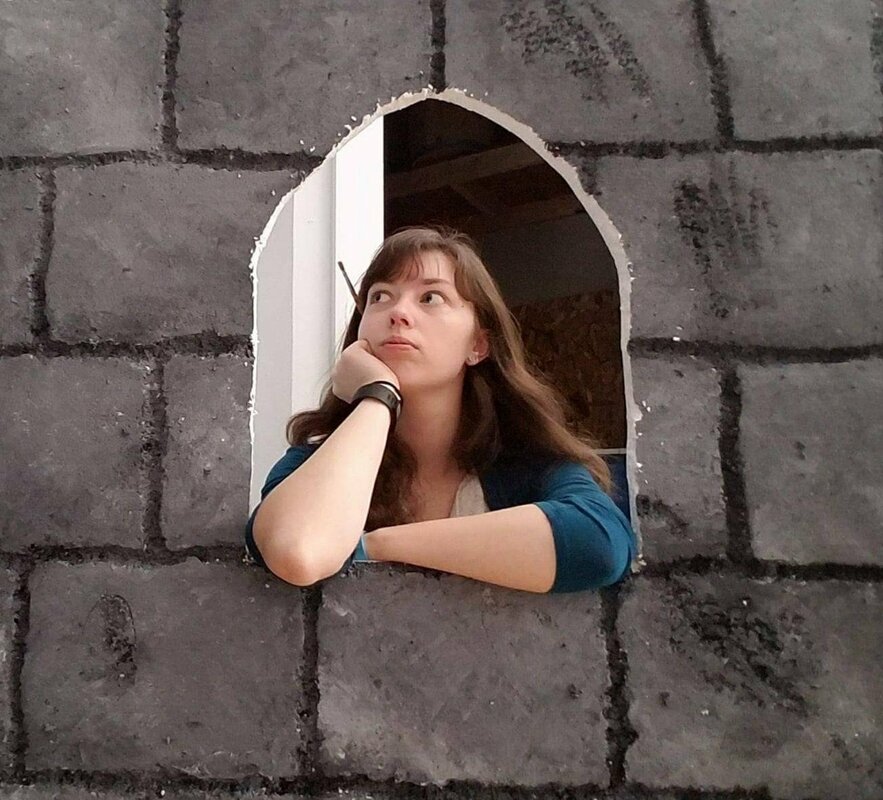

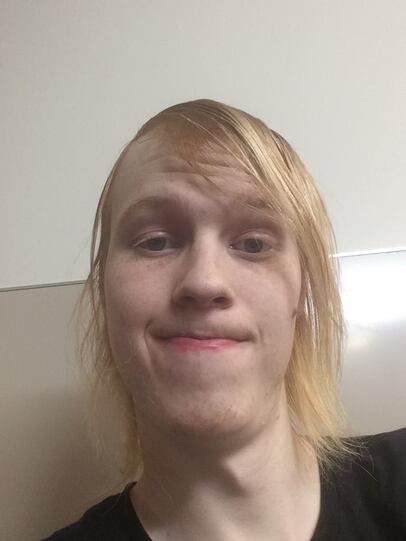

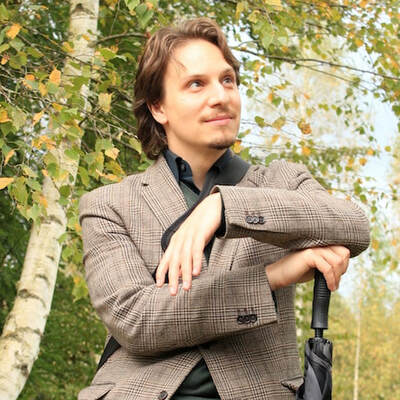
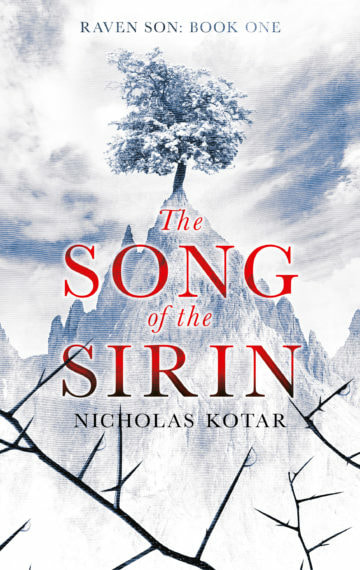
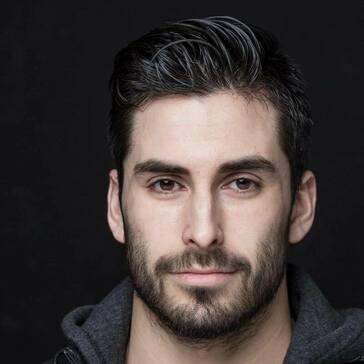
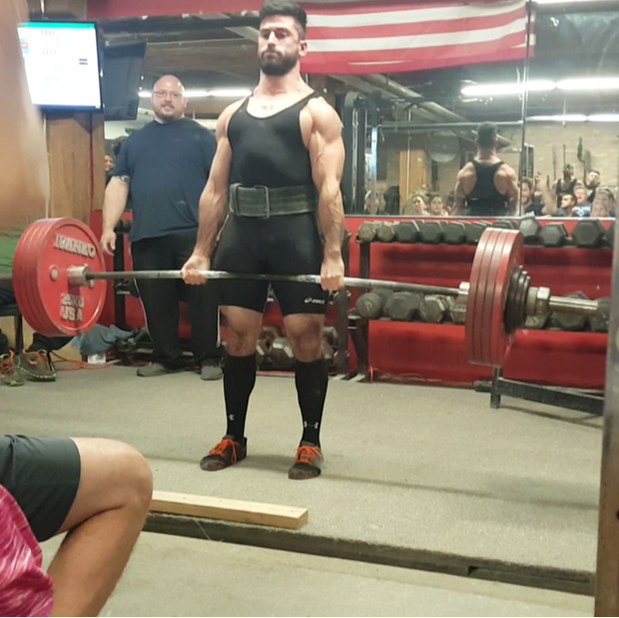
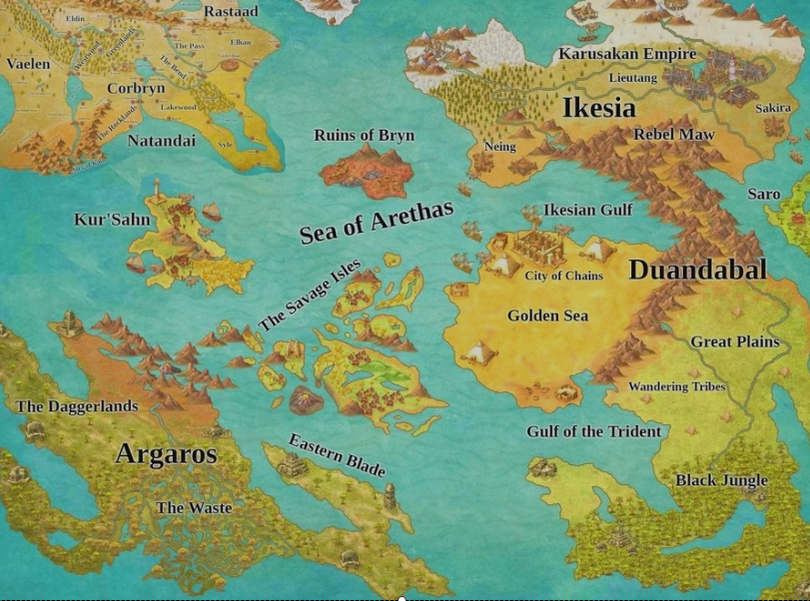
 RSS Feed
RSS Feed
